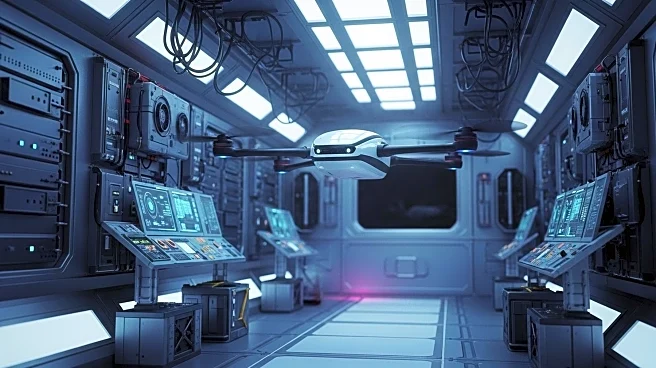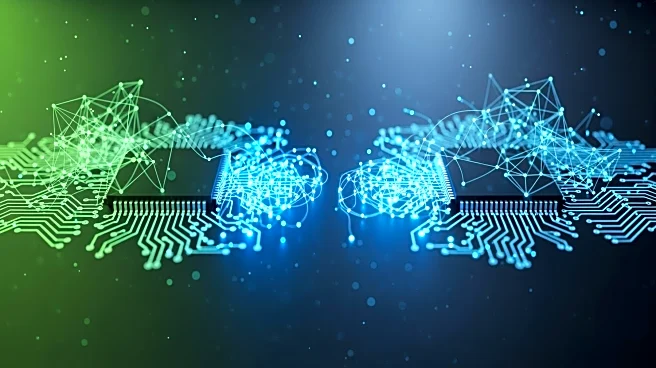What's Happening?
Icarus Robotics, a startup based in New York, has successfully raised $6.1 million in seed funding to develop AI-controlled worker drones for future commercial space stations. The company aims to alleviate the workload of astronauts by automating routine tasks such as cargo handling, equipment checks, and potentially scientific experiments. Founded by Jamie Palmer and Ethan Barajas, Icarus Robotics plans to deploy these drones to allow astronauts to focus more on scientific research and discovery. The initiative comes as the International Space Station (ISS) approaches decommissioning, prompting a shift towards commercial space stations where efficient use of astronaut time is crucial. The company has partnered with Voyager Technologies to send a prototype robot to the ISS for a year-long residency, which will help build a dataset for training future AI models.
Why It's Important?
The development of AI-controlled drones by Icarus Robotics represents a significant advancement in the commercial space sector. By automating mundane tasks, these drones could enhance the productivity of astronauts, allowing them to concentrate on high-value scientific work. This shift could lead to more groundbreaking discoveries and innovations in space research. Additionally, the use of AI in space operations could reduce costs associated with human labor, as remote operators on Earth could manage these drones at a fraction of the cost of maintaining astronauts in space. This technological advancement could also pave the way for more sustainable and efficient operations on future commercial space stations, potentially expanding the scope of space exploration to include tasks on the Moon and Mars.
What's Next?
Icarus Robotics plans to continue developing its AI-powered drones, with future iterations potentially capable of performing tasks outside the space station and on planetary surfaces. The company envisions its drones operating across multiple commercial space stations, working alongside astronauts when present and maintaining scientific progress during uncrewed periods. As the ISS nears decommissioning, the demand for efficient solutions in commercial space stations is expected to grow, potentially leading to increased adoption of Icarus Robotics' technology. The success of the prototype robot's residency on the ISS will be crucial in demonstrating the viability of AI-driven operations in space.
Beyond the Headlines
The introduction of AI-controlled drones in space raises ethical and operational questions about the role of human astronauts versus autonomous systems. While the technology aims to complement human efforts, it could eventually lead to debates about the balance between human and machine roles in space exploration. Additionally, the reliance on AI for critical tasks in space necessitates robust cybersecurity measures to prevent potential vulnerabilities that could compromise missions.








